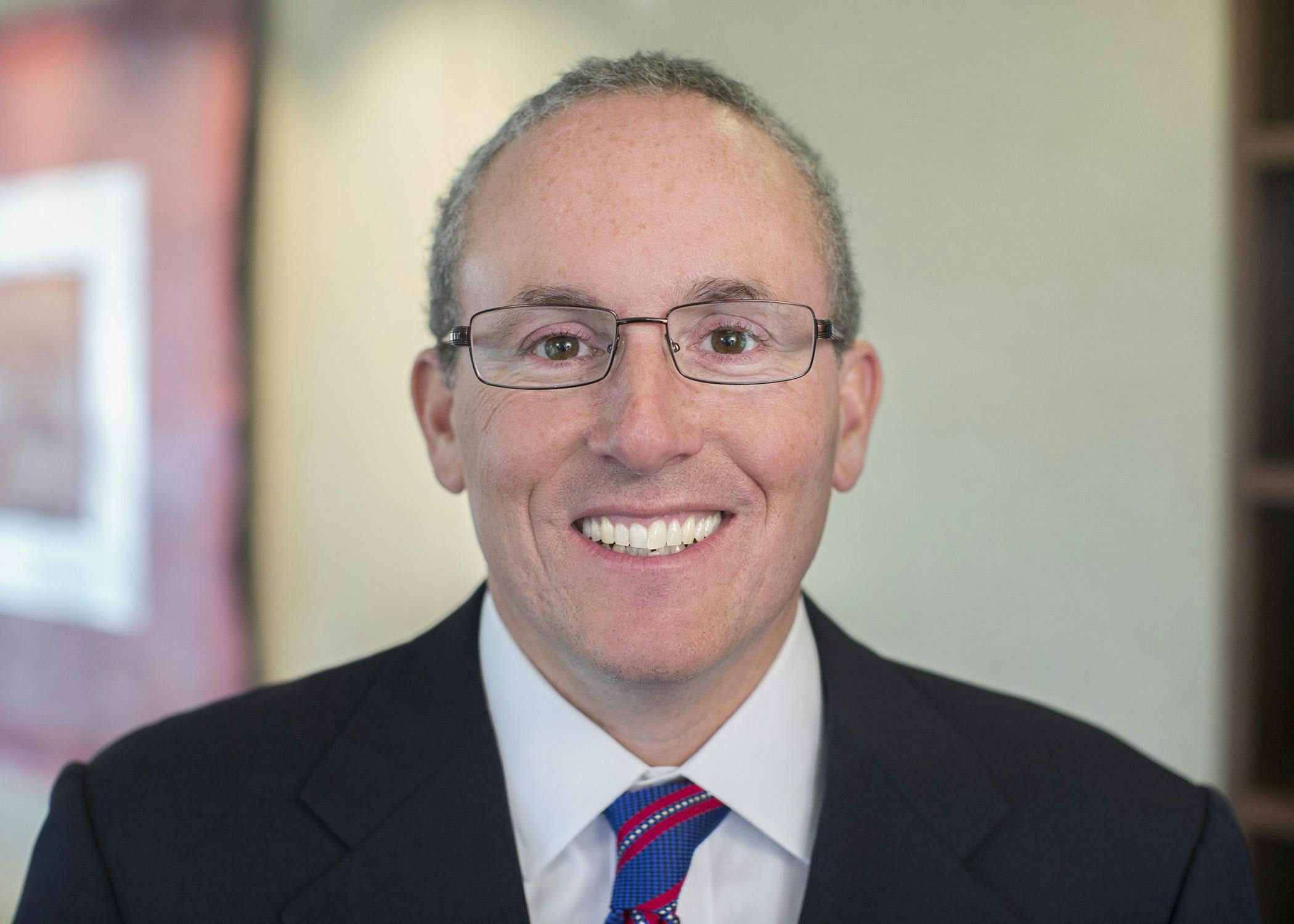The Boston Fed released updated FAQs (the Revised FAQs) and form documents to be used by eligible borrowers and lenders that wish to participate in the Program. The Program, which was established to support funding to small and medium-sized businesses that were in sound financial condition prior to the COVID-19 pandemic, consists of three separate facilities: The Main Street New Loan Facility, the Main Street Priority Loan Facility and the Main Street Expanded Loan Facility (collectively, the Facilities). Additional details, including the commencement date for the Program, will be announced by the Boston Fed in the future.
The Facilities
Loans under each of the Facilities contain certain identical characteristics, which include (i) a four-year term, (ii) deferral of principal and interest payments for the first year and capitalization of any unpaid interest, (iii) an interest rate of LIBOR plus 3%, (iv) not being eligible for forgiveness, and (v) compliance with certain covenants with respect to employee retention, compensation, stock repurchases, and capital stock distributions.
The restrictions with respect to the repurchase of equity are limited to borrowers that have, or that have a parent company that has, equity securities listed on a national securities exchange. In addition, borrowers are prohibited from making any dividends or distributions (which do not include repurchases or redemptions of equity interests) with respect to common stock, preferred stock, or similar equity interests that have a mandatory or preferential payment of dividends, unless both the equity interest and underlying payment obligation existed prior to March 27, 2020. The foregoing restrictions would not prohibit pass-through entities from making any necessary distributions to meet the tax obligations of their respective owners.
Other features of the loans under the Facilities differ, including how they interact with an eligible borrower’s existing outstanding debt. Each of the Facilities is described briefly below.
New Loan Facility
Under the Main Street New Loan Facility (the MSNLF), eligible lenders may make new term loans to eligible borrowers in a principal amount between $500,000 and $25,000,000. Loans made under the MSNLF can be to a new customer of the lender, but cannot, at any time, (i) when added to the borrower’s existing outstanding and undrawn available debt, exceed four times the borrower’s 2019 adjusted earnings before interest, taxes, depreciation, and amortization (EBITDA) or (ii) be contractually subordinated to any outstanding debt of the borrower. The principal amount of MSNLF loans (including any capitalized interest as discussed below) amortizes equally in three installments due at the end of each of years two, three, and four.
Priority Loan Facility
Under the Main Street Priority Loan Facility (the MSPLF), eligible lenders may make new term loans to eligible borrowers (including new customers of the lender) in a principal amount between $500,000 and $25,000,000, and, unlike under the MSNLF, the proceeds may be used to refinance existing debt owed to other lenders. The maximum principal amount cannot, at any time, when added to the borrower’s existing outstanding and undrawn available debt, exceed six times the borrower’s 2019 adjusted EBITDA. In addition, each MSPLF loan must, at all times, be senior or pari passu in terms of priority and security with any outstanding indebtedness of the borrower. To comply with the forgoing in the case of a secured MSPLF loan, the lender will need to confirm the MSPLF loan complies with the collateral coverage ratio described in the Revised FAQs. The principal amount of MSPLF loans (including any capitalized interest) amortize as follows: 15% of the outstanding principal due at the end of years two and three and a balloon payment due at the end of year four.
Expanded Loan Facility
Under the Main Street Expanded Loan Facility (the MSELF), eligible lenders may increase existing term or revolving loans of eligible borrowers in a principal amount equal to the lesser of (i) $200,000,000, (ii) 35% of the borrower’s existing outstanding and available debt that is pari passu in priority with such MSELF loan and equivalent in secured status (secured or unsecured), or (iii) an amount that, when added to the borrower’s existing outstanding and undrawn available debt, will not exceed six times the borrower’s 2019 adjusted EBITDA. MSELF loans must, at all times, be senior to or pari passu with, in terms of priority and security, the terms of the borrower’s other debt instruments other than mortgage debt. The principal amount of MSELF loans will amortize in the same fashion as MSPLF loans.
How is EBITDA determined?
As noted above, the maximum size of a loan under any Facility is determined by reference to EBITDA. With respect to existing customers (including in connection with any MSELF loans), lenders must require the borrower to utilize an adjusted EBITDA methodology based on a methodology that such lender has previously required in extending credit to the borrower. For new customers (or in the event adjusted EBITDA was not previously included or calculated with respect to outstanding loans made to an existing customer), lenders must require the borrower to utilize an adjusted EBITDA methodology based on a methodology previously used by such lender with respect to similarly situated borrowers prior to April 24, 2020. In the event a lender has used more than one methodology for calculating adjusted EBITDA for a particular borrower (or for similarly situated borrowers), the lender is required to select the most conservative method it has employed.
Who is an eligible borrower?
The eligibility criteria with respect to borrowers are uniform across the Facilities and are detailed in the applicable Facility term sheet. Among other things, a borrower must be a legally formed entity organized for profit. Businesses that are created or organized in the U.S., and that are subsidiaries of foreign entities may still qualify for loans under the Facilities so long as (i) the borrower has significant operations and a majority of its employees in the U.S. and (ii) all proceeds of any Facility loan are used only for the benefit of such borrower or its consolidated U.S. subsidiaries or other affiliates of such borrower that are U.S.-based businesses.
In addition, while private equity funds are ineligible to borrow under the Facilities, a portfolio company of a private equity fund may qualify for Facility loans. The eligibility criteria for any borrower regarding the maximum number of employees and 2019 revenue of the business may preclude otherwise eligible businesses because of the application of the affiliation rules proscribed by the Small Business Administration. Applicant borrowers are required to identify all “affiliates” for purposes of the certifications and covenants to be made by such borrowers and delivered to the lender.
The six criteria listed on the applicable term sheet for the Facilities are not the only eligibility conditions; a business must, among other things, certify as to the unavailability of credit and its solvency. The applicant borrower must certify that it is unable to secure “adequate credit accommodations” from other sources because the amount, price, or terms are inadequate to meet the needs of such borrower during the current and unusual circumstances. In addition, the applicable borrower must certify that it is not “insolvent.” For purposes of this certification, “insolvent” is defined to mean that the borrower is either (i) subject to a bankruptcy or other federal or state insolvency proceeding or (ii) “generally failing to pay undisputed debts as they become due” during the 90-day period preceding the borrowing, other than as a result of disruptions to the business of the borrower resulting from the COVID-19 pandemic.
How can an eligible borrower receive a loan under the program? Contact an eligible lender.
To apply for a loan under any of the Facilities, borrowers should contact an eligible lender and submit an application and any other documentation required by such lender. The eligibility criteria have not changed materially in the Revised FAQs, and eligible lenders must be (i) banks, savings associations, and other federally insured depository institutions, (ii) U.S. bank holding companies, (iii) U.S. savings and loan holding companies, or (iv) subsidiaries of the foregoing. Lenders are required to make their own certifications and covenants based on the applicable Facility, which includes a certification that the lender has reviewed the documentation provided by the applicant borrower and confirmed that such borrower meets the applicable eligibility criteria and that the loan documentation includes all of the required provisions, including financial and reporting covenants.
Eligible lenders are expected to apply their own underwriting standards to evaluate the financial health and creditworthiness of any applicant borrower at the time of its application and determine whether any applicant is eligible for a loan under any Facility. The eligibility criteria described in the terms sheets for loans under the applicable Facility should be viewed as minimum requirements. Eligible lenders are expected to use their own loan documentation, which should be substantially similar to the documentation used by such lender in the ordinary course for similarly situated borrowers and modified as necessary to incorporate the required provisions of the Program. The appendices to the Revised FAQs provide a checklist of items required to be included in the loan document, model covenants, and financial reporting provisions.
How does the loan get funded, and how is the loan administered?
To implement the Program, the Boston Fed has set up a special purpose vehicle (SPV) to purchase participations in loans originated by eligible lenders. Eligible lenders have two options in funding loans under any of the Facilities: (i) pre-funding the loan and subsequently selling a participation to the SPV or (ii) extending the loan contingent on obtaining a binding commitment from the SPV to purchase a participation in the loan upon funding. In either case, the eligible lender is required to submit the required documentation to the SPV, and the sale of the participation is conditioned that the loan meets the Program’s requirements. For any pre-funded loan, eligible lenders must submit the documentation no later than 14 days after the closing of the loans. Contingent loans must be funded by the eligible lender within three business days of the date of a commitment letter from the SPV.
The Federal Reserve will publicly disclose certain aggregate and loan-level information for the duration of the Facilities and again one year after authorization of the Facilities has terminated. The loan-level disclosures include names of lenders and borrowers, amounts borrowed and interest rates charged, and overall costs, revenues, and other fees. Aggregate information disclosed includes weekly disclosures of assets and liabilities held by the SPV. The disclosure following the anniversary of the termination of the Facilities’ authorization includes the names and identifying details of each participant in the Facilities, the amount borrowed, the interest rate or discount paid, and information concerning the types and amounts of collateral pledged or assets transferred in connection with participation in the Facilities.
Prior to the event of a default under a loan, the eligible lender, not the SPV or the Boston Fed, will service the loan in accordance with the standard of care set out in the participation agreement between the SPV and the eligible lender. The eligible lender remains the lender of record under the participation, and only in limited circumstances will the SPV either sell its participation or elevate the participation to an assignment. Subject to limited exceptions, any sale or elevation of the participation requires consent from both the borrower and the eligible lender (and any other necessary parties under the applicable loan documents (e.g., the administrative agent)).
If a borrower defaults in its payment obligations under a loan or becomes subject to a bankruptcy proceeding, the SPV has the option to elevate its participation to assignment without obtaining the borrower’s, eligible lender’s, or other parties’ consent. However, the Revised FAQs state that the SPV will, in the first instance, rely on the eligible lender to follow market-standard workout processes and to exercise the same duty of care in approaching such processes or any proceedings as it would exercise if it retained a beneficial interest in the entire loan. Generally, the SPV will only elevate such a defaulted loan, if the eligible lender’s economic interest is not aligned with the SPV’s interest or if a particular loan is large relative to the SPV’s other loans. As noted above, loans under the Program are not subject to forgiveness; however, if a loan is subject to a restructuring or workout, the SPV may agree to reductions in interest (including capitalized interest), extended amortization schedules and maturities, and higher priority “priming” loans.
The Program documents and Revised FAQs, as well as additional details with respect to each of the Facilities, including eligibility criteria and registration procedures, are available on the Boston Fed’s website here. Attorneys at Nixon Peabody are continuously monitoring developments with respect to the Main Street Lending Program to better assist borrowers and lenders looking to participate in the Program. If you have any questions related to the Program, please contact your regular Nixon Peabody attorney or the attorneys listed below. In addition, it may make sense for borrowers to initiate discussions with their existing lenders. In all events, borrowers should evaluate how taking out a loan under the Program could impact their obligations under any existing loan documents.
- See our prior alert, “Main Street Lending Program established to facilitate lending to small and medium-size businesses,” April 9, 2020. [Back to reference]





